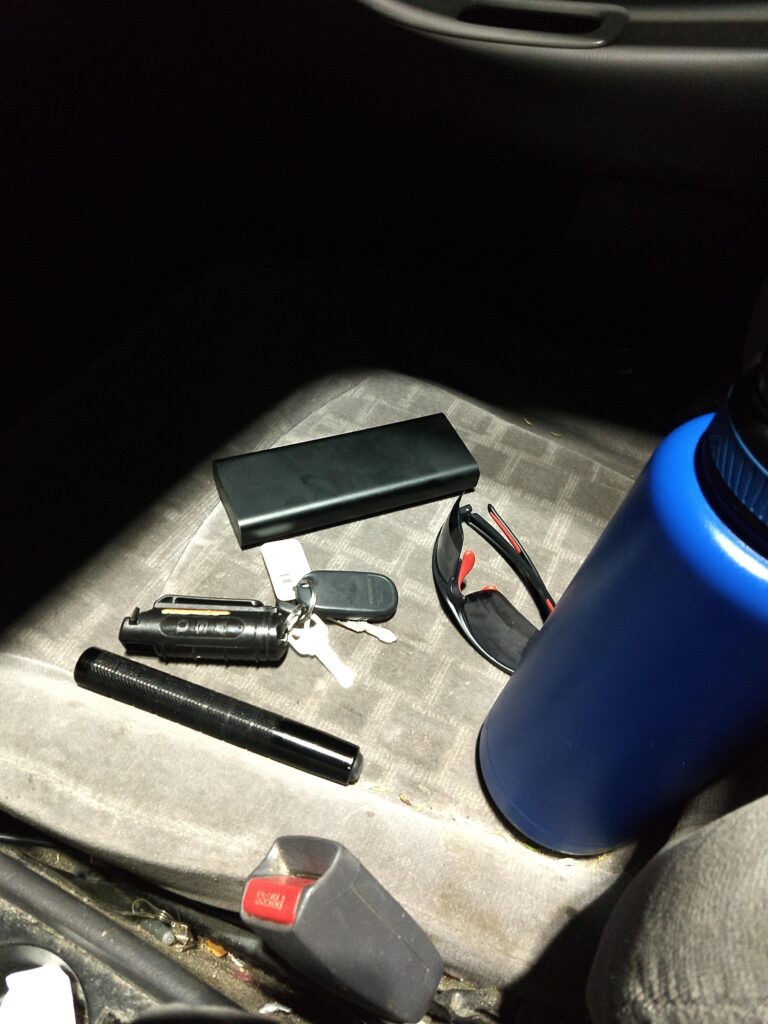Table of Contents
- Employment Eligibility and Background Checks for Security Guards Using Pepper Spray
- Training and Certification Standards for Pepper Spray Handling in Security Roles
- Legal Regulations and Compliance for Security Personnel Carrying Pepper Spray
- Best Practices for Safe and Effective Pepper Spray Use on the Job
- In Retrospect
Employment Eligibility and Background Checks for Security Guards Using Pepper Spray
Before security personnel are authorized to carry pepper spray, comprehensive employment eligibility verification is mandatory. This process typically begins with a thorough background check to ensure the candidate’s history aligns with the responsibility of carrying a defensive weapon. Employers often examine criminal records, prior employment verifications, and sometimes even credit checks to gauge reliability and integrity. Candidates with felony convictions or violent offenses are usually disqualified, reflecting the high standards required for this role. Additionally, prospective security guards must possess valid identification, appropriate licenses or certifications depending on jurisdiction, and often undergo drug screening to promote a safe and trustworthy work environment.
Beyond legal clearances, background checks serve to verify training and proficiency in using pepper spray safely and effectively. Many states mandate completion of specialized training programs before carrying pepper spray on duty, focusing on proper handling, legal boundaries, and de-escalation techniques. Employers may require documented proof of certification to comply with regulations and mitigate liability risks. This dual focus on eligibility and background validation reinforces the commitment to public safety and professionalism in the security industry. Clear policies and stringent checks not only protect the community but also enhance the credibility and confidence in security personnel entrusted with pepper spray.
Training and Certification Standards for Pepper Spray Handling in Security Roles
To ensure the responsible use of pepper spray in security roles, rigorous training programs are mandated by most regulatory bodies. These programs typically cover legal implications, proper handling techniques, and situational awareness to minimize unnecessary harm. Trainees must demonstrate proficiency in both theoretical knowledge and practical application, including safe deployment and post-use protocols. Additionally, many jurisdictions require refresher courses and scenario-based drills to maintain certification validity, reinforcing the importance of continual education and preparedness.
Certification processes often include a combination of classroom instruction, hands-on training, and a written examination. Security personnel are also trained to understand the physiological effects of pepper spray on individuals, helping them evaluate when its use is appropriate and necessary. Key components include:
- Understanding applicable laws and regulations regarding use of force
- Safe handling and storage practices to prevent accidental discharge
- De-escalation techniques to reduce reliance on chemical agents
- First aid and aftercare procedures following deployment
Legal Regulations and Compliance for Security Personnel Carrying Pepper Spray
Security personnel authorized to carry pepper spray must strictly comply with both federal and state laws regulating its possession and use. These regulations often include specific training requirements, restrictions on the types of pepper spray formulations allowed, and limitations on the circumstances under which the spray may be deployed. Employers typically mandate that security guards complete a certified course that covers legal responsibilities, safe handling, and proper use of pepper spray to ensure adherence to these codes. Failure to follow these legal parameters can result in disciplinary actions, legal liability, or revocation of the permit to carry pepper spray.
Legal compliance also demands ongoing professional development and record-keeping for security personnel. Key areas emphasized include:
- Documentation of training completion and refresher courses.
- Regular audits by regulatory bodies or employers to confirm operational readiness.
- Clear understanding of self-defense versus excessive force protocols.
- Compliance with reporting requirements following any use-of-force incidents.
- Awareness of jurisdiction-specific restrictions such as age limits or designated no-spray zones.
Maintaining such standards not only upholds the law but also reinforces public trust in security professionals, ensuring that pepper spray is employed responsibly as a non-lethal protective tool.
Best Practices for Safe and Effective Pepper Spray Use on the Job
To ensure maximum safety and effectiveness when carrying pepper spray at work, it’s crucial for security personnel to follow strict guidelines. Always maintain proper control of your device by securing it in an accessible yet safe holster. Before deployment, assess the situation carefully to avoid unnecessary exposure to bystanders or yourself. Aim for the subject’s face, particularly the eyes, as this target area delivers the most effective incapacitation. Remember to activate your spray in short bursts to conserve the contents and minimize risk of self-contamination.
Key considerations for on-the-job pepper spray use include:
- Ensuring compliance with local laws and employer policies regarding pepper spray carry and use
- Attending regular training sessions to refresh deployment techniques and safety protocols
- Wearing protective gear such as gloves and eye protection during training exercises
- Conducting immediate after-action care, including safely decontaminating the sprayed individual if necessary
- Documenting any use-of-force incidents thoroughly and accurately
In Retrospect
In today’s security landscape, understanding the employment requirements for security guards carrying pepper spray is crucial for both employers and professionals in the field. Ensuring that guards are properly trained, certified, and compliant with local laws not only enhances their effectiveness but also protects the safety and rights of everyone involved. As regulations continue to evolve, staying informed and proactive is key to maintaining a secure environment while upholding legal and ethical standards. Whether you’re an aspiring security guard or an employer, prioritizing these requirements is a vital step towards responsible and professional security service.Check Our Other Blogs
- StunGun – Your Trusted Source for Stun Guns, Laws, and Self-Defense Tips
- PepperSprayLaws – Your Trusted Resource for Pepper Spray Information
- StunGunLaws – Your Trusted Guide to Stun Gun Legality and Safety




